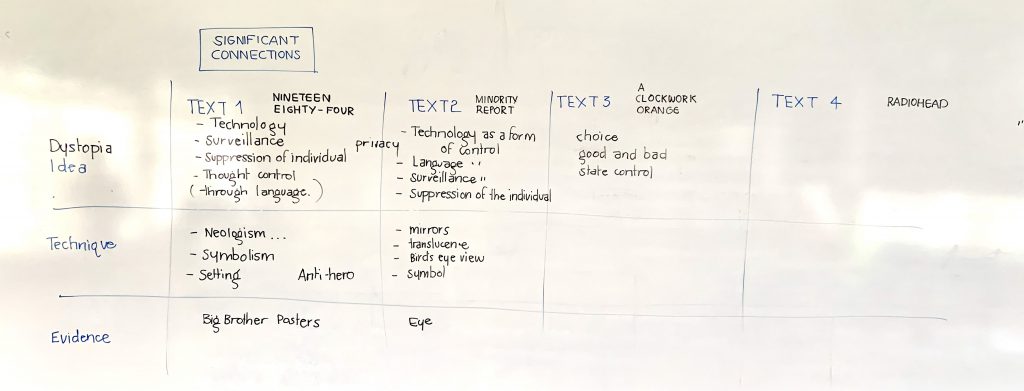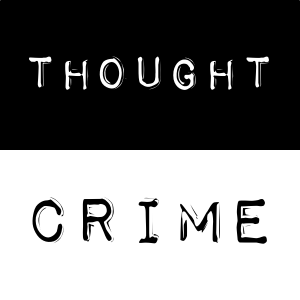Articles:
Full Text of “Politics and the English Language”
HonorsOrwellPoliticsEnglishLanguageExploratory Exemplar
A near-universal feature of dystopia is the use of technology to advance the control of the state over the individual. Just like in Nineteen Eighty Four, The film Minority Report by Steven Speilberg presents us with a terrifying image of a society that has crossed the line and inserted its control over the private lives, and even minds of its citizenry. In this case the District of Columbia has implemented a programme called “Pre-crime”, where the state is able to prevent all murders from happening by apprehending the criminal before the crime is committed. This surveillance state is represented in the film as vividly as in Orwell’s novel by presenting advanced iris scanning in public spaces, the use of transparency, the use of camera angles to reinforce invasion of privacy and the constant projection of images of the eye in public spaces. Just as Airstrip One in Nineteen Eighty Four presented banners of Big Brother in all public spaces, The District of Colombia projects video images of close-ups of the human eye in these same spaces. This presents a constant reminder of the state’s observation, and a diminishment of people’s privacy. This idea is further developed through the decision to film sequences using bird’s eye view – thereby placing the viewer in the position of the state, able to watch people engaged in the most private acts.
Sample Planning



0 Comments